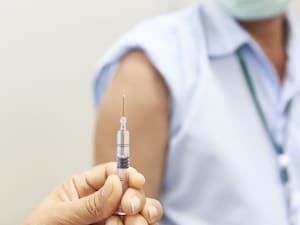
MONDAY, Jan. 14, 2019 (HealthDay News) — If you have children, you know how important it is to keep up with their immunization schedule.
But getting vaccines and booster shots is vital throughout adulthood as well.
The most common adult shot is the yearly flu vaccine, recommended for just about every adult. Some fight three flu strains, others, four.
However, there’s more to do.
You might not realize that you should have a tetanus-diphtheria-pertussis (or Tdap) booster every 10 years. Pertussis, better known as whooping cough, has been making a comeback because not enough people have been getting re-immunized.
And if you didn’t have chickenpox or the varicella vaccine as a child, you’re a candidate for the two-dose immunization.
Other recommended vaccines:
Women up to age 26 should have the HPV vaccine; it’s given to men up to age 21, and under some circumstances, up to 26. The newest version protects against nine types of the human papillomavirus, the ones most heavily associated with cancers, such as cervical cancer.
Depending on your age and the type of measles-mumps-rubella vaccine you were given as a child, you might be a candidate for a two-dose MMR vaccination.
Some other shots are specifically intended for people age 50 and over, such as the zoster vaccines, designed to help you avoid shingles, a very painful reactivation of chickenpox virus.
Those 65 and older are encouraged to get vaccines that protect against many strains of pneumonia. Depending on your health status, you may benefit from getting pneumonia vaccines at an earlier age, along with meningitis and hepatitis vaccines.
There are also special recommendations for pregnant women and world travelers, depending on your destination. Be sure to talk to your doctor about your individual needs.
More information
The U.S. Centers for Disease Control and Prevention has a detailed chart on essential vaccinations for men and women of all ages.
